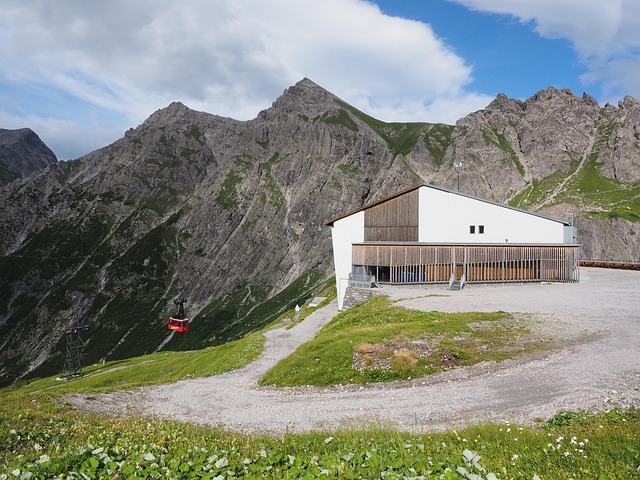Real estate serves as a cultural bridge in vibrant cross-border commerce, reflecting diverse property laws and customs that enrich international transactions. Global traditions vary from traditional land systems to innovative financing, fostering mutual understanding and strengthening partnerships. Cross-border commerce transforms local markets, driving competition and influencing architectural styles, development trends, and pricing strategies. Modernizing historic real estate practices through digitization is crucial for fostering sustainable growth, enhancing accessibility, communication, and transparency to attract global investors.
In today’s interconnected world, vibrant cross-border commerce traditions are reshaping global landscapes. From historic real estate exchanges to modern trade practices, these dynamics significantly influence local markets and communities. This article explores the cultural exchange underpinning global real estate trends, delves into the impacts on regional economies, and highlights the modernization of historic real estate practices for enhanced international trade. Unveiling these traditions offers insights crucial for navigating the evolving global market.
Unveiling Global Real Estate Traditions: A Cultural Exchange

In many vibrant cross-border commerce traditions, real estate plays a significant role, acting as a bridge between cultures and economies. Each country possesses unique property laws and customs that reflect its history and values, making the buying, selling, and renting of properties an intriguing cultural exchange. Understanding these variations is essential for navigating successful international transactions.
From traditional land tenure systems to innovative financing methods, global real estate traditions offer a rich tapestry of practices. For instance, some cultures prioritize community-based ownership while others embrace free market principles. Exploring these differences not only enriches the cross-border commerce experience but also fosters mutual understanding and strengthens international partnerships.
The Impact of Cross-Border Commerce on Local Markets and Communities

Cross-border commerce has had a profound impact on local markets and communities, reshaping the economic landscape in vibrant ways. The influx of diverse goods and services from neighboring countries brings an exciting array of choices for consumers, fostering competition and often driving down prices. Local businesses are forced to adapt, either by differentiating their products or expanding into new markets themselves. This dynamic is particularly evident in sectors like real estate, where cross-border influences can shape architectural styles, property development trends, and even pricing strategies.
Communities benefit from this exchange through cultural enrichment as well. The movement of people across borders for trade introduces new customs, culinary delights, and traditions, creating a rich tapestry of shared experiences. Local markets transform into melting pots where vendors and customers alike engage in cross-cultural conversations, fostering understanding and strengthening ties between neighboring regions.
Embracing Change: Modernizing Historic Real Estate Practices for International Trade

In the realm of vibrant cross-border commerce, modernizing historic real estate practices is a game-changer. Traditional real estate methods often lag in adapting to international trade’s evolving dynamics, but embracing change is key to fostering sustainable growth. As global businesses navigate complex landscapes, updating local regulations and policies regarding property ownership, leasing, and management becomes essential for facilitating seamless cross-border transactions.
This transformation involves digitizing historic practices, making them more accessible and efficient. Modern technologies enable quick verification of legal documents, streamline communication across borders, and enhance transparency in real estate deals. By embracing digital solutions, historic real estate practices can be modernized to cater to the needs of international investors and businesses, thereby attracting a new wave of cross-border commerce opportunities.






